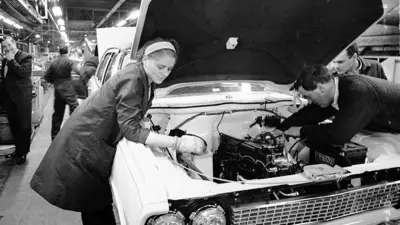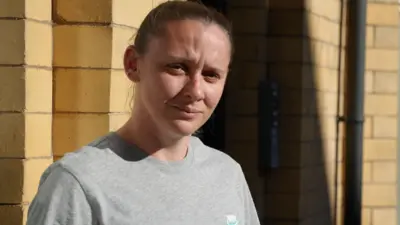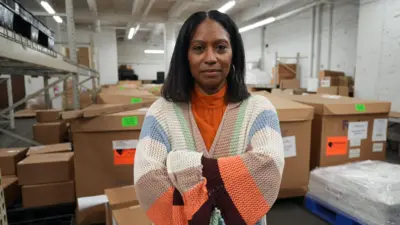We've updated our Privacy and Cookies Policy
We've made some important changes to our Privacy and Cookies Policy and we want you to know what this means for you and your data.
Whooping cough: Vaccine appeal as Northern Ireland cases rise
Image source, Getty Images
Pregnant women and parents of young children in Northern Ireland are being urged to get vaccinated against whooping cough.
It follows what the Public Health Agency described as a "significant rise" in cases of the infection.
There have been 72 confirmed cases of whooping cough (pertussis) so far this year in Northern Ireland compared with just two between 2021 and 2023.
Whooping cough is a highly contagious serious bacterial infection.
Louise Flanagan, of the PHA, said it can make babies and young children in particular very ill, and can even be fatal in young babies or people with heath conditions.
However, she said it can be prevented by vaccination.
'Protecting babies'
"The evidence shows that babies born to vaccinated mothers are 90% less likely to get the disease than babies whose mothers were unvaccinated," she said.
"Young babies are at greatest risk of developing more serious disease, so it is very important that women take the offer of pertussis vaccine during each pregnancy so that their baby is protected against whooping cough after they are born, and that they continue that vaccination journey after their baby is born, getting them vaccinated, starting from when they are two months old.
"The best time for women to get the vaccine is between 16 and 32 weeks of pregnancy, but vaccine can be beneficial even if given later.
"Whooping cough vaccines are given at GP practices, so make sure to make an appointment to get it."
The vaccine is also given as part of the childhood vaccination programme to children at eight, 12 and 16 weeks of age and at aged three years, four months.
The PHA has said that increases in cases of the illness are usually seen every three to four years.
It said parents should watch for symptoms including severe coughing fits accompanied by a 'whoop' sound in young children and by a prolonged cough in older children or adults.
It advised parents to keep babies away from anyone showing the signs or symptoms of whooping cough.
Top Stories
More to explore
Most read
Content is not available








